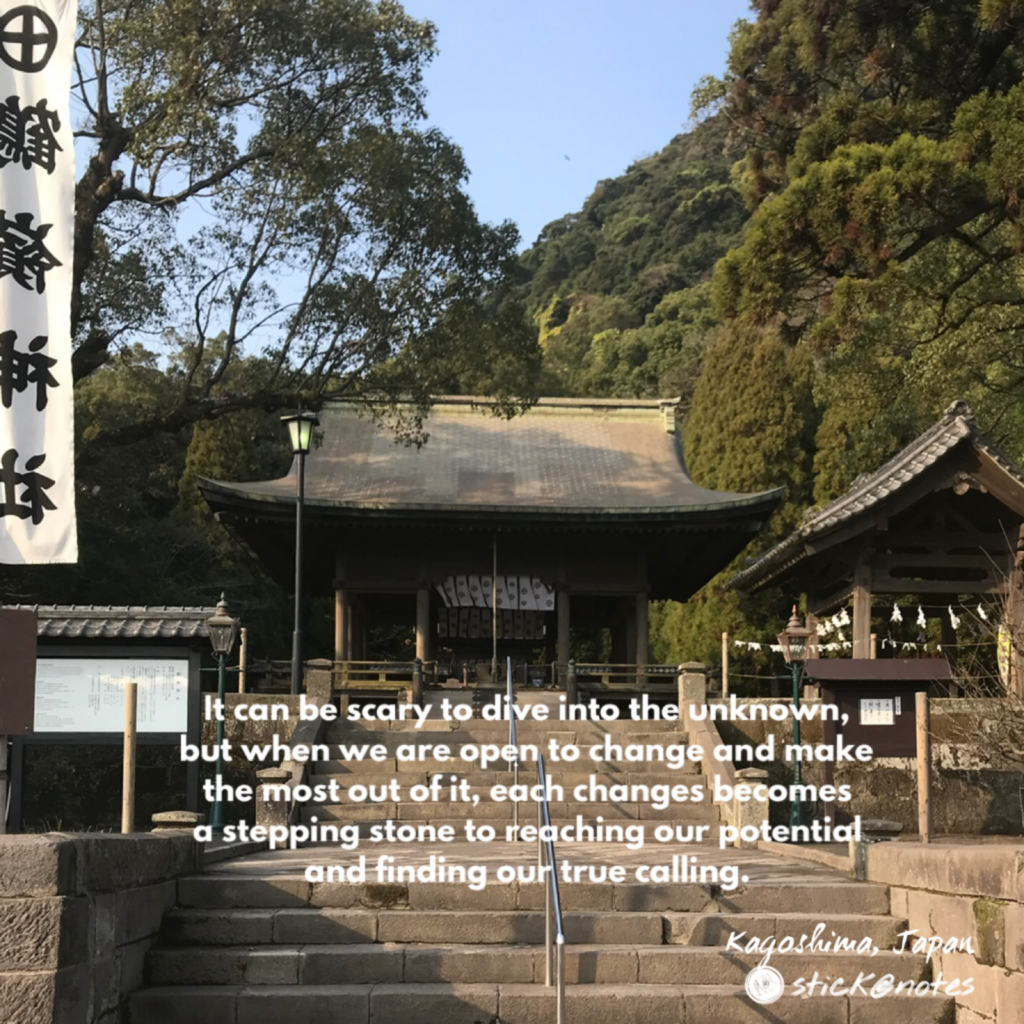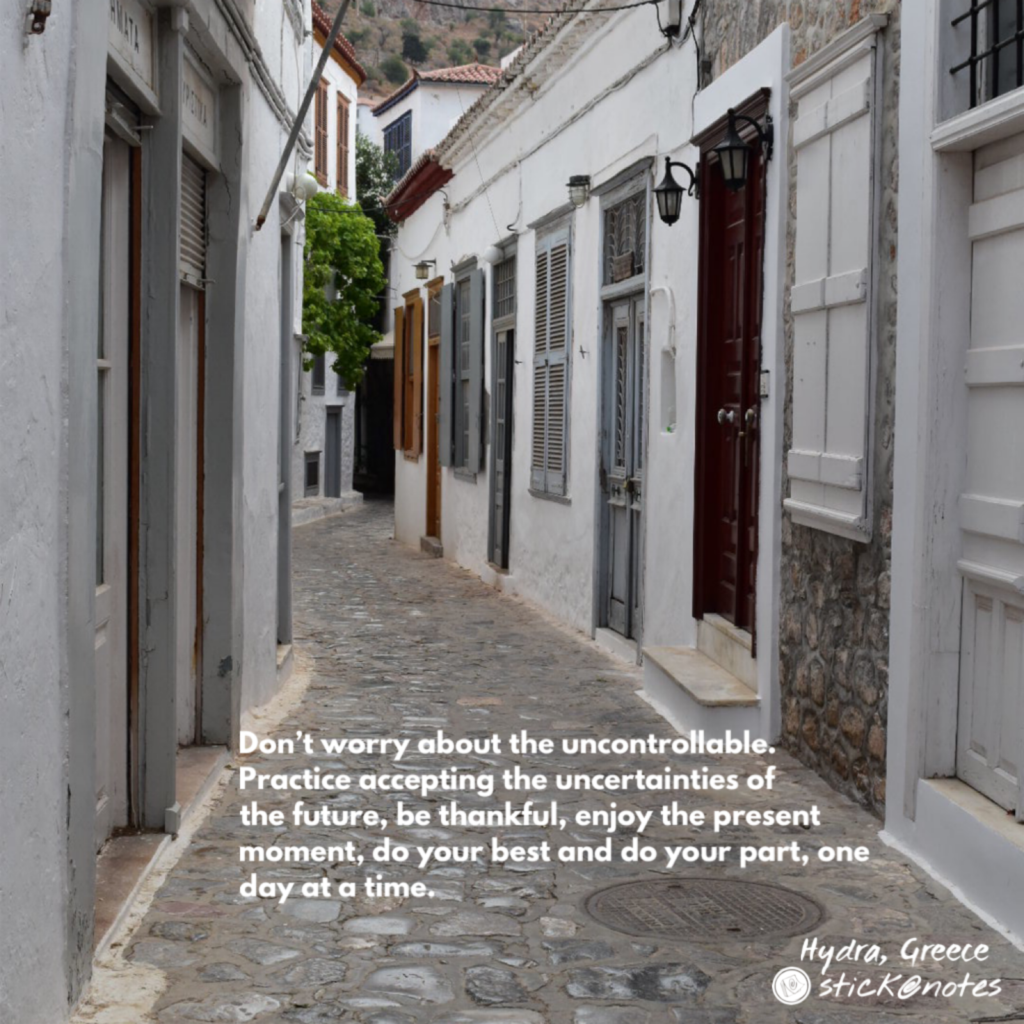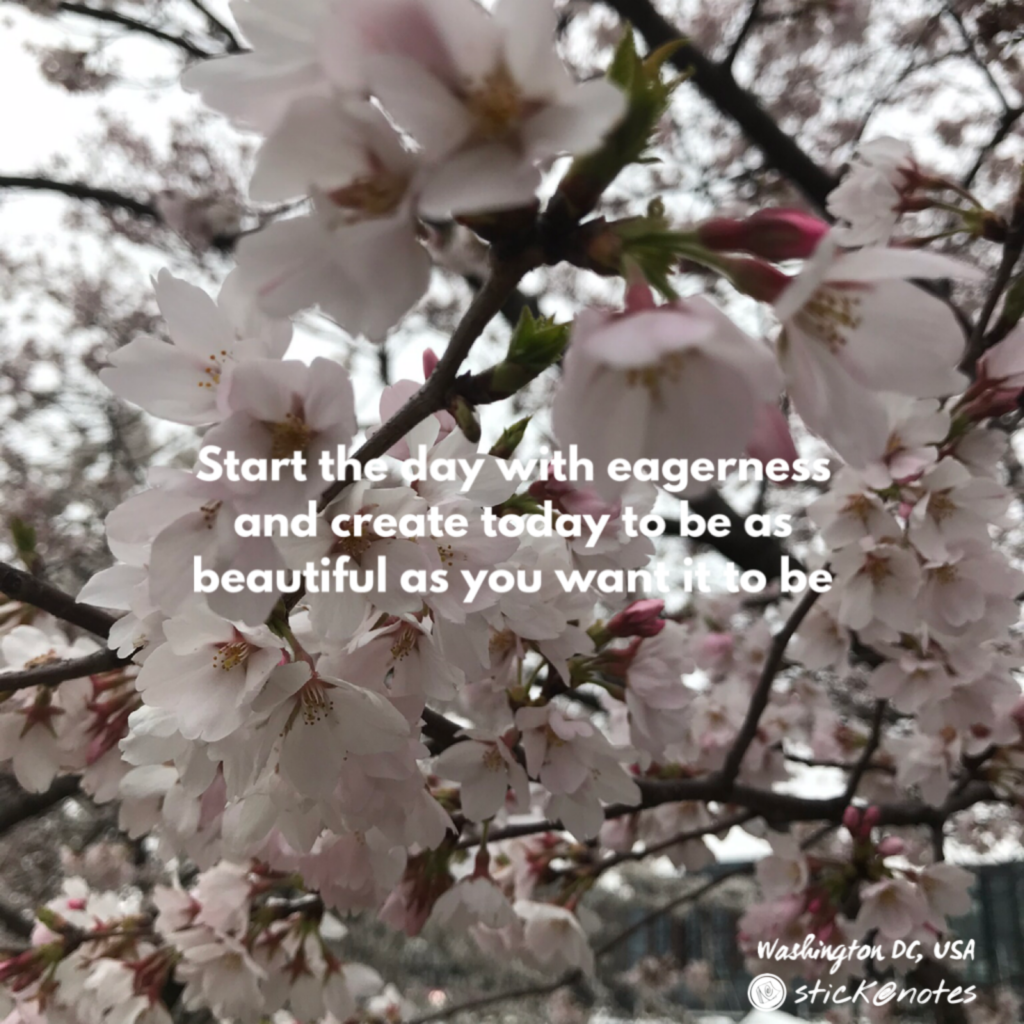-
Making The Most Out Of Change
Early last year, my son decided to quit his job and abruptly moved across the country to pursue another college degree. He faced various changes in circumstances which prevented him to settle permanently in one place until eight months after the move. Then coronavirus pandemic hit, and colleges around the country closed their campuses and moved classes online. Like most students, he has to move back home temporarily until campuses re-open.
If he has to summarize his past year in seven words, he can use the popular quote by Heraclitus; “Change is the only constant in life!”
He is definitely not alone feeling the frustration of constant change, especially during the current pandemic! But changes, big and small, are very much a part of life affecting us all. No one is immune to it, and avoiding change is just another way to create more stress in life.
Our ability to overcome hurdles and obstacles really depend upon how we react to them. Instead of resisting changes that come along our life journey, there are four ways to embrace and make the most out of them.
1. Change is an opportunity to learn something new (hard skills)
During this pandemic, with stay-at-home order and restrictions to dining at the restaurants, many are adapting to home cooking and baking more than ever. Social media are flooded with recipes and cooking videos. Many who hardly cook before find a new hobby to enjoy. Some learn to be more creative. Others even turn it to a home-cooked meal business.
At workplaces, employees’ resistance to change is one of the challenges faced by managers or supervisors; costing companies significant lost time and productivity. When they implement software or culture change, for instance, employees who are adaptable and show willingness to learn are the ones who excel in their career; compared to their peers who resist and complain about the change.
2. Change is an opportunity to sharpen soft skills
Soft skills, also known as interpersonal skills, are combinations of personal attributes and traits that often determine how well we interact with others. Unlike hard skills that can be learned at school or through training, soft skills relate to emotional intelligence developed naturally or learned through awareness from life experience. The changes we encounter throughout our life are in fact life experiences we can use to sharpen our soft skills. These include but not limited to adaptability, patience, communication, flexibility, creativity, leadership, teamwork, and time management.
3. Change is an opportunity to re-assess current situation
During the current pandemic, businesses suffer and unemployment skyrockets. This can be an opportunity for us to re-assess our emergency plan, as well as budgeting and spending habits. We may save extra money unsubscribing the unnecessary or reduce dining out. We can also plan for a more robust emergency fund to better prepare in the future.
4. Change is an opportunity to step outside our comfort zone
We all like familiarity and security. Staying in our comfort zone keeps us comfortable, safe, and to some degree free from anxiety. But stepping out of our comfort zone is one way to experience and try new things, grow and reach our potential.
To illustrate this, let’s look at this scenario. You have been working for one company for more than 10 years. You feel comfortable, know everyone, and do your tasks so well that practically you can do them with one eye closed. There is no challenge, and you have learned everything you need to. Though sometimes you feel bored and unproductive, you are reluctant to change job due to fear of the unknown.
One day the company has to downsize and you lose your job. This change may seem overwhelming at first; but it is your chance to step outside your comfort zone, and look for another job. You can even explore other opportunities like freelancing or starting a business. There is no doubt that this change requires courage; after all you are stepping into unfamiliar zones. Later when you look back, you realize that the whole experience allowed you to expand your horizon and cultivate a successful career.
It can be scary to dive into the unknown; but when we are open to change, and accept them with open arms, we can make the most out of it. Each changes can become a stepping stone to reaching our potential and finding our true calling. It is common that we hear many successful and happy people find their purpose in life, and end up doing something they’ve never thought they could, after a life changing event.

-
How to Reduce Worries With Two Questions
Worries and doubts are normal part of life; and sometimes it is needed to give us a push to do something better. For instance, worry about the upcoming final exam helps us study harder and be more prepared on the test day. Likewise, worry about a presentation gives us incentive to do more research on the topic and spend more time practicing. Being prepared beforehand most likely gives us more confidence during the actual presentation.
Excessive and persistent worry, however, can be detrimental to our health, both physically and emotionally. The constant “what ifs” and thousands of scenarios that run in our head leave us feeling agitated, anxious, and restless; interfere with our daily routine, keep us up at night, and take us away from enjoying life in the present moment.
The good news is, there is a way to reduce our worries to a manageable and healthy level by asking these two questions; and understand that there are two types of worries: positive worries and negative worries.
1. Can I do something about this worry?
If the answer is yes, then this is positive worry. Positive worries are those we can use to give us a push to do better or to stop procrastinating. As long as we act on this worry and take proper steps, we can turn it into learning opportunities; increase our productivity, or step outside our comfort zone. For example, if you worry about retirement income, take some actions and learn more about how to set aside money automatically from your paycheck into a retirement account. You can also contact a financial advisor or someone with more experience in this area to help you understand the overall process. The outcome of this kind of worry is that, when you do something about it, you learn something new, give you more confidence, all of which will empower you.
If the answer is no, then go to the next question.
2. Is this worry going to make the situation better?
When you answer no to the first question, your worry is classified as negative worry. Negative worries are usually those related to the future or something that is beyond our control. I call this kind of worries as negative because by thinking all the negatives, the “what ifs” and millions of scenarios in our head, we are slowly but surely destroying our physical and emotional health; while we can’t change the situations any better. Nothing good comes out of this kind of worry. What if my partner cheats on me? What if I get sick during my trip? I am terrified when I am alone, what if I live alone when I am old?
Breaking the negative worry cycle is not an easy task at first, but it is something we can practice until it becomes our second nature. First we need to be aware when worries start to be persistent or excessive. Asking the second question helps interrupt the chain of negative thinking, and puts us back to the present moment. It reminds us that worrying the unknown and the uncontrollable is not going to make the situation any better. We can instead practice accepting the uncertainties of the future, be thankful and enjoy the present moment, do our best and our part, one day at a time.

-
Four Things To Start Each Day With Eagerness
Sometimes it is hard to wake up in the morning with great enthusiasm when we are down, especially during difficult time like the current pandemic, where one negative news after the other keep coming through our smart-phone feed and social media.
The pandemic has caused so much change and hardship to many people and businesses. For many, stay-at-home order without any jobs can be overwhelmingly stressful and depressing. The financial hardship that comes along with losing a job can affect overall physical and emotional health.
While certain challenges can pull us down, there are four things we can do to start each day with some kind of eagerness, maintain our spirits, and end the day feeling good about what we have accomplished.
1. Put something you love and are most excited about first thing in the morning
Think about something you love to do and most excited about, and put that activity first thing in the morning. Setting the most enjoyable routine in the morning would give you the excitement to get out of bed and start the day right.
2. Be thankful
Think or list at least four things to be thankful about every morning. When your brain is busy being thankful, it is hard to think about something negative. Being thankful gives out the most powerful energy to switch your emotions from feeling down to feeling blessed. Being thankful gets rid of all kind of negative emotions like annoyance, sadness, fear, or unfairness. It gives you both enjoyment of the present moment and positive energy to move forward.
3. Use and share your gifts and talents
Think about one or two things you are really good at and enjoy, do something about it during the day and share your gifts with your colleagues, friends or family. Let’s say you are good at computer/database system at work where most employees are not computer savvy, share your knowledge with your co-workers and help them when they are having a hard time with it. If you are good at cooking, prepare a meal that can be enjoyed together with your family. If you are talented at organizing, plan to organize one small area in the house or at work each day. Basically, use your gifts and what you enjoy most as daily routine. You would have the excitement to do what you love, and in the same time share the results with others. Imagine the smiles you can generate for yourself and people around you!
4. Make each day as learning opportunity
Be ready and excited to learn something new each day. When we are open to learn continuously, we will look at everything in life entirely from a different angle. We wouldn’t be worry so much what challenges we face ahead. We are set to learn and grow from them, grow to be a stronger, wiser, and better version of ourselves!
So yes you can do it. Stop dragging yourself out of bed. Start the day with eagerness and create today to be as beautiful as you want it to be!

